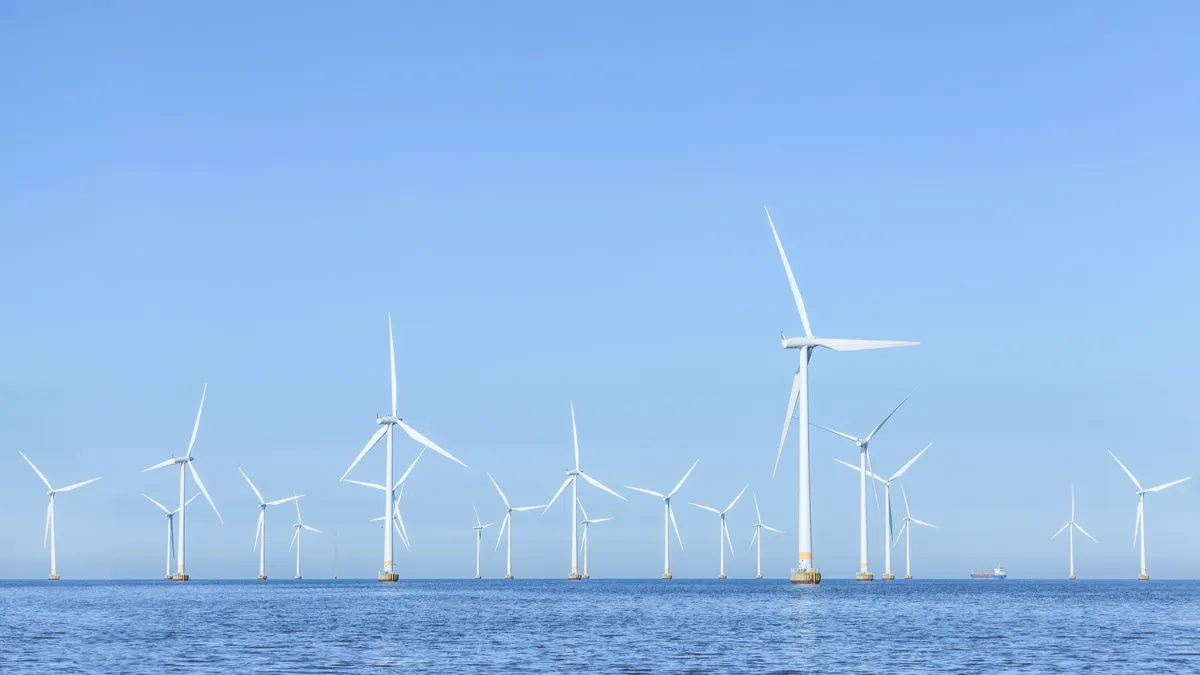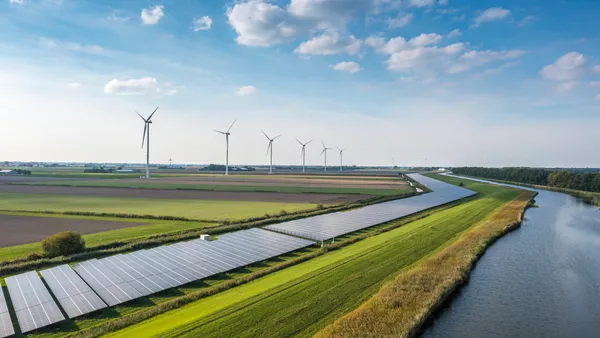Dive Brief:
- Bid selection and contract negotiations for the landmark Massachusetts, Connecticut and Rhode Island offshore wind solicitation have been delayed a month to Sept. 6, so the states can consider impacts from a $389 million Department of Energy infrastructure grant, the states announced Tuesday.
- The DOE grant will provide funding to New England states to upgrade their power grid in order to accommodate the energy that offshore wind will provide, with the aim of enabling 4.8 GW of additional offshore wind capacity, according to a release. The funding comes from the bipartisan infrastructure law.
- The solicitation received bids from Ørsted, Avangrid, SouthCoast Wind and Vineyard Offshore. A Vineyard Offshore spokesperson said the company “fully [supports] the states taking the necessary time to assess the positive impacts” of the funding.
Dive Insight:
“Massachusetts, Rhode Island, and Connecticut have shown visionary leadership with their multi-state, 6,800-MW solicitation,” the spokesperson said. “We understand the importance of ensuring these projects maximize benefits for residents and ratepayers.”
Rebecca Ullman, director of external affairs for SouthCoast Wind, said the company “[acknowledges] the enormity and complexity of reviewing offshore wind proposals especially in light of the exciting new [DOE] Grid Resilience and Innovation Partnerships Program grant and [supports] the states’ decision to delay.”
The bid selection was set to take place on Aug. 7. The execution of long term contracts was also moved from Oct. 9 to Nov. 8, and the submission of those contracts for state agency approval was moved from Nov. 13 to Dec. 18.
The DOE funding will be “a critical component to building out a resilient and sustainable offshore wind network across the Northeast,” said Sam Salustro, vice president of strategic communications at Oceantic Network. “New projects will require more transmission capacity, and this short extension will allow both bidders and states to take this new development into their planning process."
The three New England states signed a memorandum of understanding last October to coordinate offshore wind procurement, and the first-ever tri-state offshore wind solicitation opened for bids in March.
Vineyard Offshore proposed a 1,200-MW Vineyard Wind 2 project to all three states; Ørsted proposed a 1,184-MW Starboard Wind project to Connecticut and Rhode Island; Avangrid submitted several different proposals for the 791-MW New England Wind 1 and 1,080-MW New England Wind 2; and SouthCoast Wind submitted a 1,200-MW project to all three states.
Avangrid would be repurposing its existing work on the Park City Wind and Commonwealth Wind projects to create New England Wind, after canceling its contract with Connecticut for the former projects due to high development costs. As a result, the company describes New England 1 as “exceptionally advanced and shovel-ready.”
A notice from the Massachusetts Department of Energy Resources regarding the bid selection delay said that the evaluation team “continues to diligently perform its obligations to conduct a fair and competitive evaluation of the Section 83C proposals, including coordinating the current Section 83C solicitation with the simultaneous solicitations ongoing in Connecticut and Rhode Island.”
“Therefore, it is in the best interest of the Commonwealth and all ratepayers to extend the Section 83C project selection date to allow for continued deliberation on all proposals to ensure any selection decision is in the best interest of ratepayers and that the evaluation meets all obligations of Section 83C and the MOU,” the notice said.















